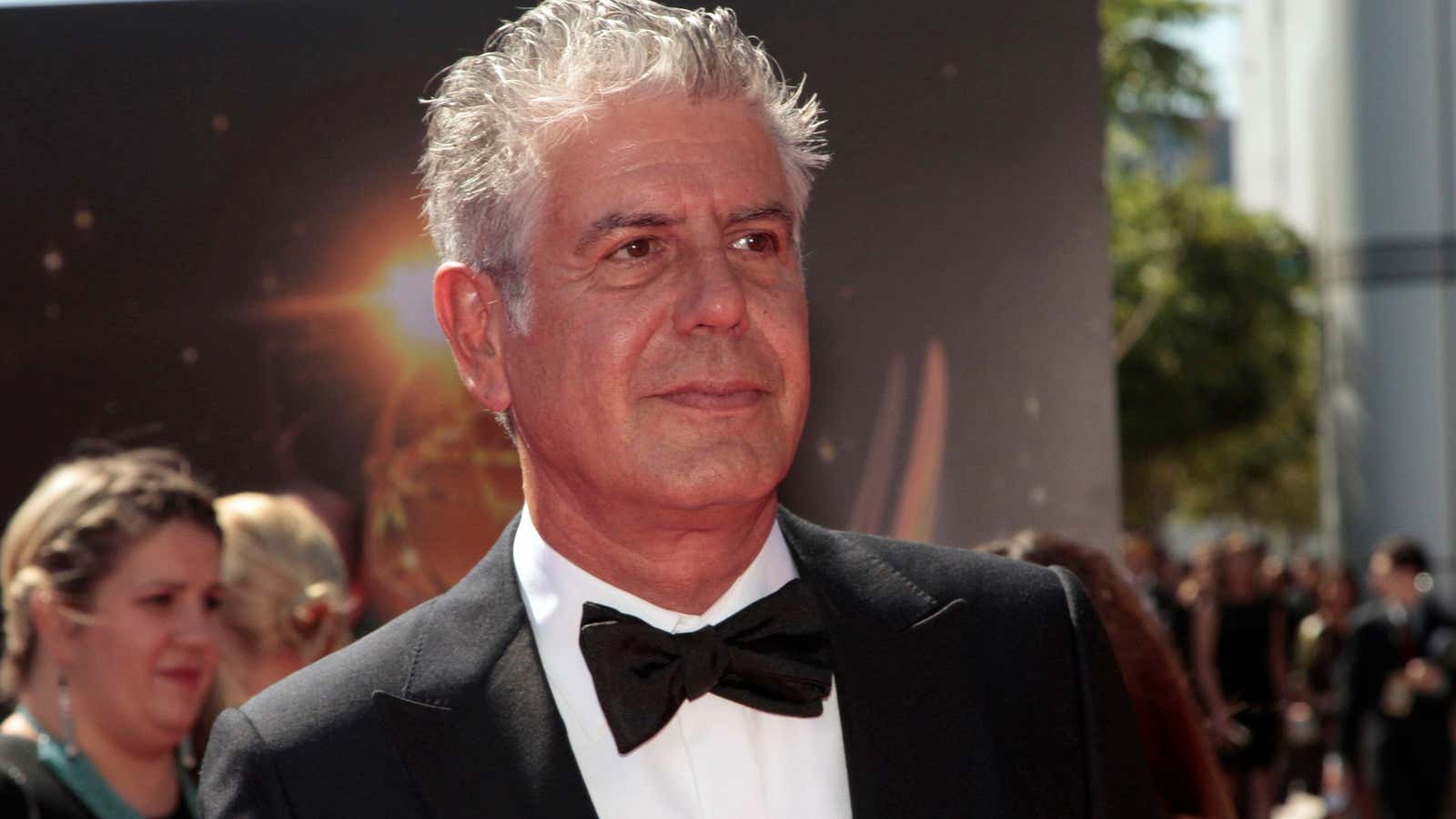Anthony Bourdain, the American chef and culinary globetrotter who died today, will be remembered for creating the food travel show as we know it, and for his memoir, Kitchen Confidential, which fundamentally changed food media. He helped to usher in an era in which diners, readers, and viewers were as interested in the kitchen as the menu—call it the age of the chef auteur.
In Bourdain’s own telling of his life, he was a fair-to-middling chef, a guy who loved the kitchen and turned out standard French bistro fare at Les Halles, the Manhattan restaurant he helmed before he became a full-time elder statesman of the food world. Perhaps his own suggestion that he wasn’t actually a good cook, which he delivered with his signature ironic self-deprecation, is why Anthony Bourdain’s Les Halles Cookbook is so overlooked, compared to the rest of his oeuvre. (It has just 180 reviews on Amazon, compared to close to 2,500 for Kitchen Confidential.)
This is a mistake. It’s great cookbook—funny, accessible, and full of recipes worth adding to a kitchen repertoire. Anyone who considers themselves more than a casual cook has a copy of Mastering the Art of French Cooking kicking around somewhere. With all respect to Julia Child and her very thorough soufflé instructions, Les Halles is a much better French cookbook for American kitchens today.
There are five recipes for mussels in this book, as well as one for tartiflette, an insane French dish that is sort of like potatoes au gratin, with the addition of an entire wheel of reblochon cheese (and bacon, to boot). There’s also a beautiful soupe au pistou, which he describes in the headnotes by writing, “A French vegetable soup similar to minestrone. Pistou is similar to pesto.” He was brief, to the point, even dry at times—and unafraid to school an American audience. In the instructions he writes, “The day before you make the soup soak the beans in plenty of cold water for 24 hours. Since you have time, you might want to consider making your own chicken stock at this point.”
Chef-driven books are often packed full of very complicated recipes and plating instructions that bear no relation to how people cook at home, but Bourdain did not make that mistake. It’s remarkable how few ingredients most of his recipes have. He writes largely of meat or fish, vegetables, stock, aromatics, and time, with some searing and deglazing in the mix. From the headnotes to the sidenotes, it’s shot through with asides—opinions about ingredients, dishes, techniques—a sort of David Foster Wallace-in-cookbook-form.
In the recipe for Coquilles Saint-Jacques with Champagne, Bourdain sorts ingredients in the headnotes, writing, “Sea scallops are not those horrible little pencil erasers (a.k.a. calico scallops), nor the scallops that come in a plastic tub, marinating in some mysterious liquid.” In the instructions he notes, “You’re only going to need a half-cup of that Champagne, and since you had to crack a whole bottle, and it’s going flat anyway, you may as well start drinking. That’s what’s called ‘the chef’s prerogative.'” A final sidenote instructs the cook to, “Take a big hit off the remaining Champagne and stagger to the table.”
Today would be a good day to make one of Anthony Bourdain’s recipes, and follow his directions to the letter. It’s a fitting tribute to a cook who loved the kitchen and the table in equal measure.
